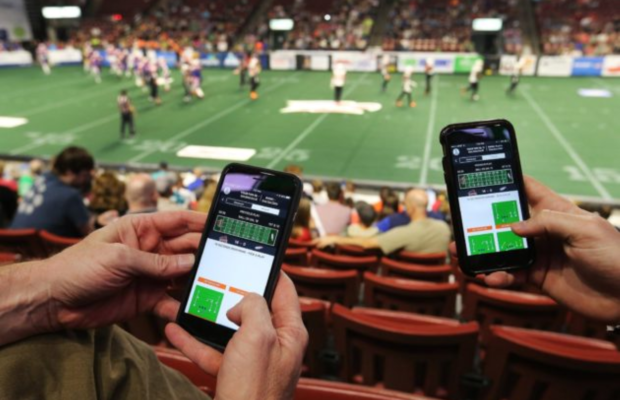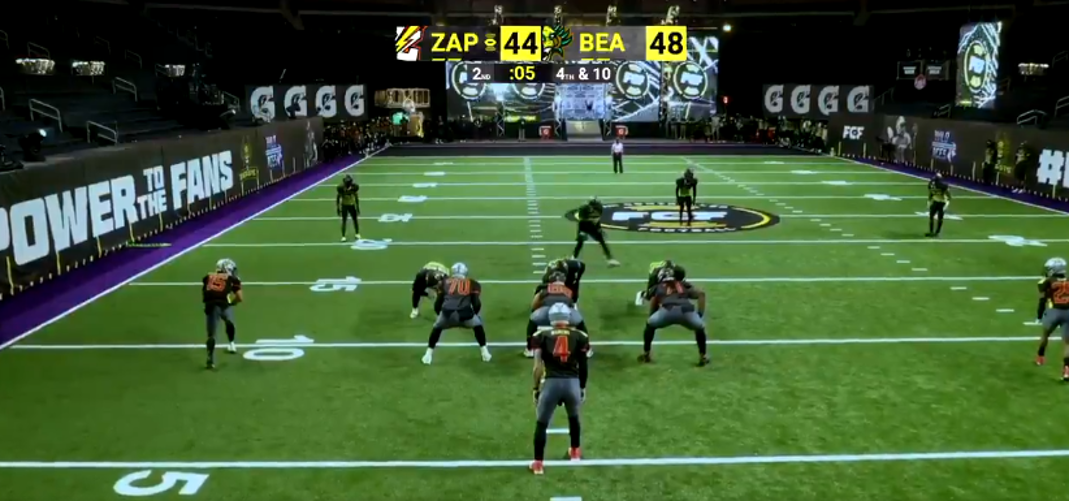Fan-Controlled Football latest entry in pro football leagues

In the food chain of American football, the National Football League’s place at the top is unquestioned. The ecosystem of the sport that Americans are most passionate about wraps around the NFL, whose season ends with the Super Bowl, and marks the beginning of blues season—of melancholy and withdrawal of six months or so to the next kickoff.
The bell has tolled for decades to fill this void between seasons with a spring league. Venture capitalists and whoever wants a little income as coach or player—and possible recognition that will earn a tryout with an NFL team—have tried to capitalize on America’s never-ending yearn for football. Most notable in the Super Bowl era was the United States Football League (USFL), which had a three-year run as a spring league in the 1980s.
Recent times witnessed the entry of the Alliance of American Football in 2019, whose season ended a mere seven weeks after it kicked off. A similar destiny was in wait for the XFL which shut down a few weeks into its first-and-only season in 2020 due to COVID. The league plans to regroup in the spring of 2022. It has also partnered with app developer Your Call Football to implement a novel feature where fans can take part in in real-time play calling.
But such an innovation is already here in a new league with four teams and seven players per side who play on a field 50 yards long and 35 yards wide in an arena inside a television studio. In what could be hailed as “the People’s League,” Fan Controlled Football (FCF) puts people first. All it takes is a smart phone or access to Twitch, a video game streaming service. A schedule of six games for four teams over three weeks—all in Duluth, Georgia—FCF gives power to the fans. Games premiered on February 13.
Fan Controlled Football is like a reality TV and fantasy football hybrid. Among the many novelties, fans get to draft, trade and cut players, hire and fire coaches. Players are given electronic devices and get to communicate with fans during a game. They can also have whatever messaging they choose on their nameplates. Whether it’s a cause, a phrase, or their social media handles, the idea is to build a connection with the fans.
“We’re redefining the relationship between players and fans.” says Patrick Dees, the league’s co-founder who bears the title of Chief Gaming Officer,
Fans control the action in the game with a choice of four diagramed pass or run plays, which are generated for them to see before they are run. (Fans for the team on defense, select defensive emphasis such as blitz packages, man-to-man or zone.) The coach relays the play selection into the players.
Games consist of 20-minute halves with the clock continuously running. Stoppages are rare.. With just an 8-minute intermission, the game is over within an hour.
FCF is without special teams since there are no kickoffs or field goals. A team begins possession at its own 10-yard line. Extra points feature a fan-chosen wide receiver and a defender. The quarterback is not allowed to run with the ball or is he challenged by a defensive pass rush. He is given three seconds to fire the ball for a fan-determined one-point conversion attempt from the five-yard line or for two points from the ten.
Another scoring wrinkle is that one point is awarded when a defense recovers a fumble or intercepts a pass.
Fans can join the film room between games to voice input and strategies to coaches.
FCF is a cornucopia of unknown names, but Johnny Manziel, a 2012 Heisman Trophy is one FCF player that people who follow football should recognize. A first-round draft choice of the Cleveland Browns, his penchant for being undisciplined and going to parties, however, led to a short-lived pro career. But “Johnny Football” may have found a niche as an FCF quarterback.
“The product will keep getting better as the weeks go on,’’ Manziel predicted. “You know, win or lose, we booze,” he added, in smirky reference to his reputation for fondness of alcohol.
Will Fan Controlled Football last?
“I clicked on the link and I could not stop watching,” says Damond Talbot, founder of the website Draft Diamonds. “It was fun to watch.”
People into gaming and fantasy football comprise the demographics expected to drive the novel league, which many observers like Talbot think will be here for a while.
Feature image: Geekwire
